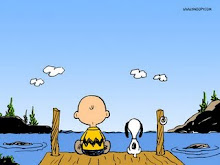Conspirator

- Brian
- I went out there in search of experience To taste and to touch and to feel as much As a man can before he repents.
 Slumdog Millionaire, winner of the 2009 Academy Award for Best Picture, among numerous other awards, is a great film that I think most people will enjoy. In the last few years, nominees and winners of the Best Picture Academy Award have tended towards either the bleak annui of life or towards an existential crises to which the protagonist must either succumb or overcome (and preferably before the movie ends). Consider No Country for Old Men, There Will be Blood, The Hours, The Hurt Locker, Babel, Crash, Atonement, Traffic, Lost in Translation, Mystic River--all films released in the last decade. There may be more, but I haven't seen all the nominees from the last decade. And, this list is just off the top of my head. When movies such as Seabiscuit, Sideways (a marvelous script, by the way), or Up are nominated for the best picture Oscar, I seriously doubt anyone considers them serious contenders cinema's highest recognition. (I can't decide whether or not I'd include Little Miss Sunshine in the first or second category.) These are films that are occasionally good enough to receive a nomination, but rarely do they deliver a win. Normally, they get a consolation prize of supporting actor or actress...or sound editing. This is not a reflection on the quality of the films, but simply an acknowledgement of the prejudice that exists towards films of this nature. (I haven't seen Million Dollar Baby, but it's difficult to imagine that it is better than Sideways.) Slumdog Millionaire, though, was too good to be denied. This happens every so often (see, Forest Gump, which may have been too popular to deny, but in any event....).
Slumdog Millionaire, winner of the 2009 Academy Award for Best Picture, among numerous other awards, is a great film that I think most people will enjoy. In the last few years, nominees and winners of the Best Picture Academy Award have tended towards either the bleak annui of life or towards an existential crises to which the protagonist must either succumb or overcome (and preferably before the movie ends). Consider No Country for Old Men, There Will be Blood, The Hours, The Hurt Locker, Babel, Crash, Atonement, Traffic, Lost in Translation, Mystic River--all films released in the last decade. There may be more, but I haven't seen all the nominees from the last decade. And, this list is just off the top of my head. When movies such as Seabiscuit, Sideways (a marvelous script, by the way), or Up are nominated for the best picture Oscar, I seriously doubt anyone considers them serious contenders cinema's highest recognition. (I can't decide whether or not I'd include Little Miss Sunshine in the first or second category.) These are films that are occasionally good enough to receive a nomination, but rarely do they deliver a win. Normally, they get a consolation prize of supporting actor or actress...or sound editing. This is not a reflection on the quality of the films, but simply an acknowledgement of the prejudice that exists towards films of this nature. (I haven't seen Million Dollar Baby, but it's difficult to imagine that it is better than Sideways.) Slumdog Millionaire, though, was too good to be denied. This happens every so often (see, Forest Gump, which may have been too popular to deny, but in any event....). of Mumbai, India. His life is revealed in flashbacks as he is questioned by the police, suspected of cheating on the game show Who Wants to be a Millionaire? This is a great plot device. The policeman plays a VHS of his game show appearance and pauses it in-between questions asking him how he knew the answer, then we get a flashback to a previous moment in his life, which is almost always tragic, even when it's comical, but especially when it's horrific. In its way, Slumdog Millionaire offers commentary on the slums, on the way the powerful prey on the weak, the way the poor are exploited, but the film is careful not to let these things overwhelm the narrative. This is a "feel good" movie, after all. Jamal makes his way onto Who Wants to be a Millionaire? because he knows that Latika, a girl whom he has deeply loved throughout his life and who has been sold by Jamal's brother Salim to a slum lord, will be watching.
of Mumbai, India. His life is revealed in flashbacks as he is questioned by the police, suspected of cheating on the game show Who Wants to be a Millionaire? This is a great plot device. The policeman plays a VHS of his game show appearance and pauses it in-between questions asking him how he knew the answer, then we get a flashback to a previous moment in his life, which is almost always tragic, even when it's comical, but especially when it's horrific. In its way, Slumdog Millionaire offers commentary on the slums, on the way the powerful prey on the weak, the way the poor are exploited, but the film is careful not to let these things overwhelm the narrative. This is a "feel good" movie, after all. Jamal makes his way onto Who Wants to be a Millionaire? because he knows that Latika, a girl whom he has deeply loved throughout his life and who has been sold by Jamal's brother Salim to a slum lord, will be watching.